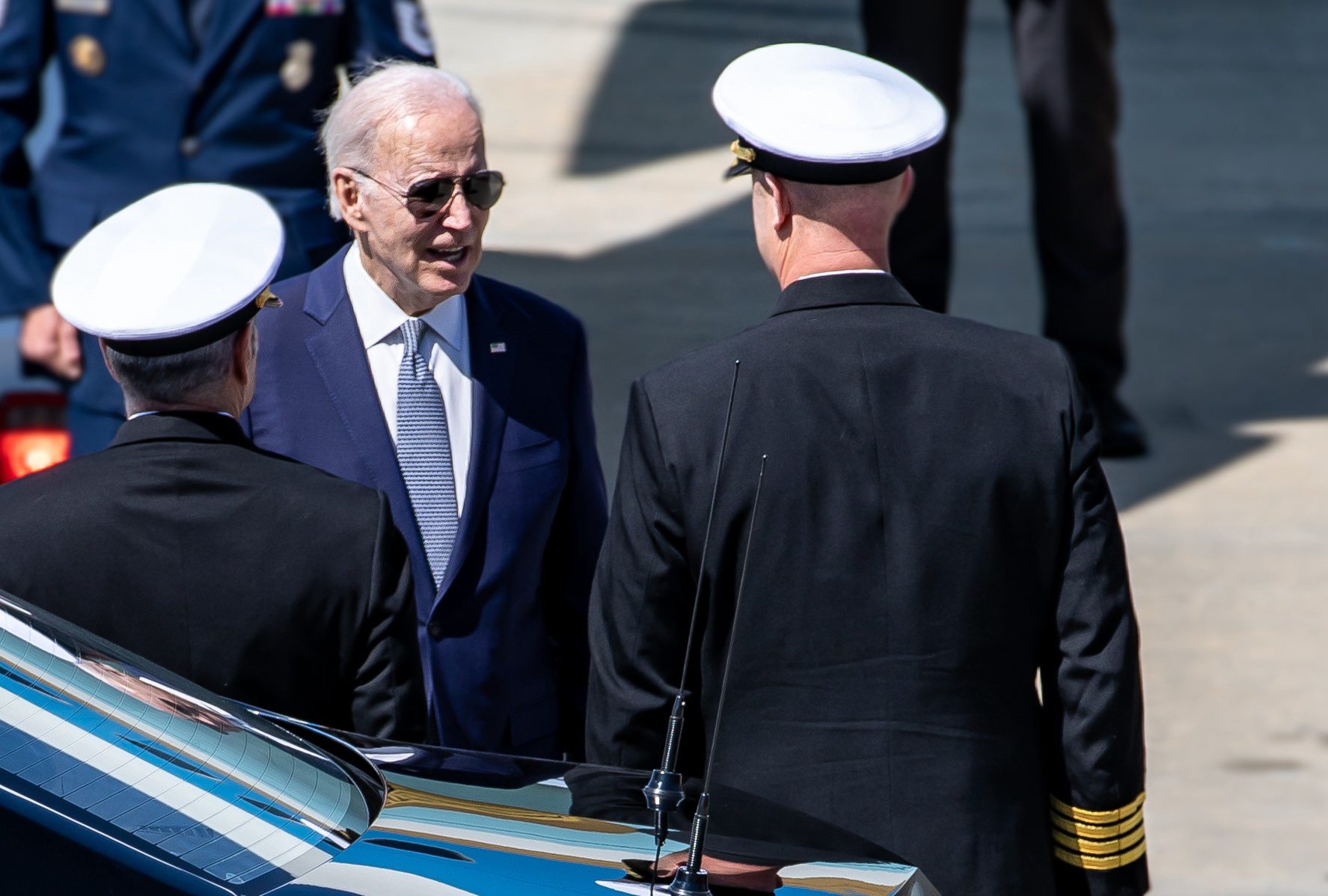Hung Cao – A Navy Diver In The Pentagon Briefing Room
Hung Cao and the Fight to Rebuild America’s Maritime Power Before the Next War Arrives by Captain John Konrad (gCaptain) The first thing you notice about the US Navy’s Undersecretary...

by John Konrad (gCaptain) After a blitz of appearances promoting Operation Prosperity Guardian early in the year, the White House has been mostly silent this summer on the US Navy’s considerable efforts in the Red Sea. As the seafarer death count rises in the region, neither presidential candidate has meaningfully addressed the issue. However, yesterday, in an interview with ABC News, Biden claimed the US has “checkmated” China. He also took credit for the AUKUS submarine agreement with Australia and the UK.
In a short twenty-two minute interview, ABC’s George Stephanopoulos asked Biden how he would feel if Donald Trump wins the Presidential race in January. “I will feel as long as I gave it my all and I did as good a job I know I can do that’s what this is all about,” said Biden. “I think the US and the world is at an inflection point where the things that happen in the next seven years will determine what the next six or seven decades will look like.”
The President continued “I am able to keep the Pacific Basin in a position where we’re at least checkmating China now.”
Stephanopoulos did not question this bold statement.
This is an unexpected statement considering that China has greatly increased aggression against Philippine military resupply missions in the South China Sea and currently has an above-normal naval presence in the waters surrounding Taiwan.
This presidential statement does not account for the fact that China is providing extensive support to Russia and is Iran’s largest trading partner. At first glance, this may not seem relevant to the Pacific Basin, but Russia is a Pacific nation. Additionally, thousands of ships entering and leaving the Pacific Basin have been rerouted around Africa due to Iran-backed Houthi aggression.
Also Read: Why China is unlikely to restrain Iran
Most concerning is that claiming “checkmate” in the Pacific overlooks the fact that China has the largest Navy, largest Coast Guard, largest Naval Militia, and largest shipbuilders in the world. It also has the world’s largest fleets of military controlled merchant ships and owns ports globally.
A small and diminishing minority of naval experts still believe the United States has the ability to win a war in the Pacific against China, but no serious naval expert believes it would be an easy fight. Throughout the administration, gCaptain has interviewed dozens of admirals and naval security experts, and never once have I heard the word “checkmate.”
AUKUS, the trilateral nuclear submarine agreement with Australia and the UK, has been praised by most experts as a significant accomplishment of the current administration. However, Biden has let the buying power of the US Navy plummet against inflation, and many question the survivability of AUKUS without significantly more funding from Congress – including a Democrat controlled Senate – and more leadership and support from the White House. Warships are expensive, and parity with China would require spending more on the Navy over other services, support that Biden and the Secretary of Defense—a former Army general—appear unwilling to provide.
In a recent paper on AUKUS, Dr. Elizabeth Buchanan and Dr. Richard Dunley, two world-recognized Australian naval researchers, questioned the viability of AUKUS, especially Phase 3 — the decision to design and build SSNs with the United Kingdom.
“Critics point to the challenges that are currently besetting the British submarine service and question Britain’s economic capacity and political will,” they write. “Both the United Kingdom and the United States are focused on the build of their replacement ballistic missile submarines (SSBNs) and have struggled to provide the immediate support necessary to rapidly stand-up (submarine) production in Adelaide.”
As the complexities of global naval power dynamics intensify, President Biden’s assertion of “checkmating” China in the Pacific Basin appears overly simplistic and detached from reality. With China bolstering its maritime capabilities and exerting influence across key global chokepoints, the United States faces an unprecedented challenge that cannot be met with rhetoric alone. The AUKUS agreement, while a notable achievement, remains vulnerable without substantial and sustained investment. The stakes are high, and the future of freedom of navigation and trade in the Pacific and Red Sea requires on more than just declarations—it requires decisive action and unwavering commitment. Commitment that the US media brushes over and neither US presidential candidate appears willing to discuss at length.

Sign up for gCaptain’s newsletter and never miss an update

Subscribe to gCaptain Daily and stay informed with the latest global maritime and offshore news
Essential news coupled with the finest maritime content sourced from across the globe.
Sign Up